UN Belarus Results Report 2021 Presented in Minsk
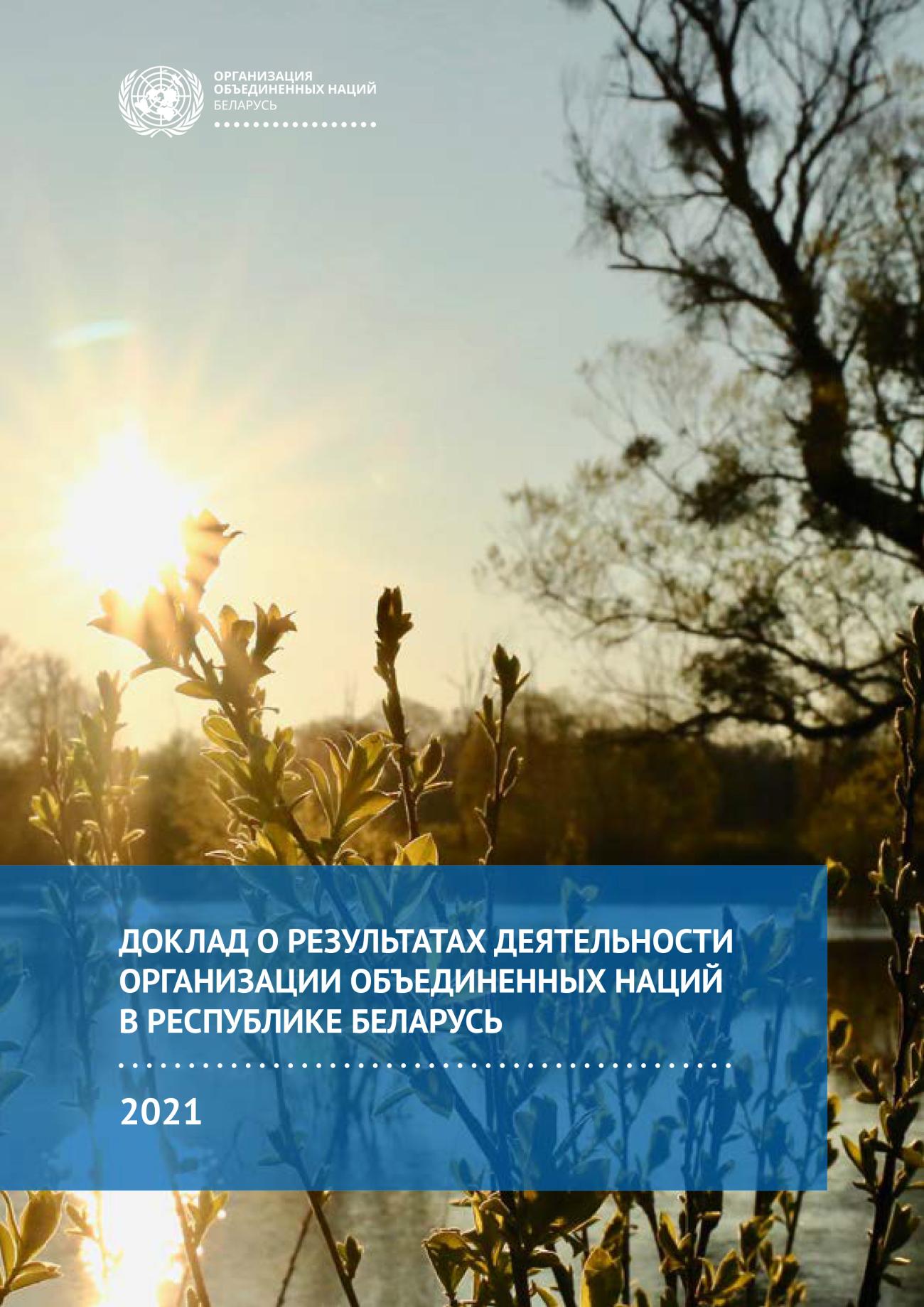
19 May 2022
The UN Belarus Results Report 2021 was presented in Minsk as part of the meeting of the Council for Sustainable Development with representatives of ministries, the Parliament, regional executive committees, educational institutions and nongovernmental organizations as well as UN agencies.
Belarusian Deputy Minister of Foreign Affairs Yury Ambrazevich and UN Resident Coordinator in Belarus Joanna Kazana-Wisniowiecki welcomed the meeting participants.
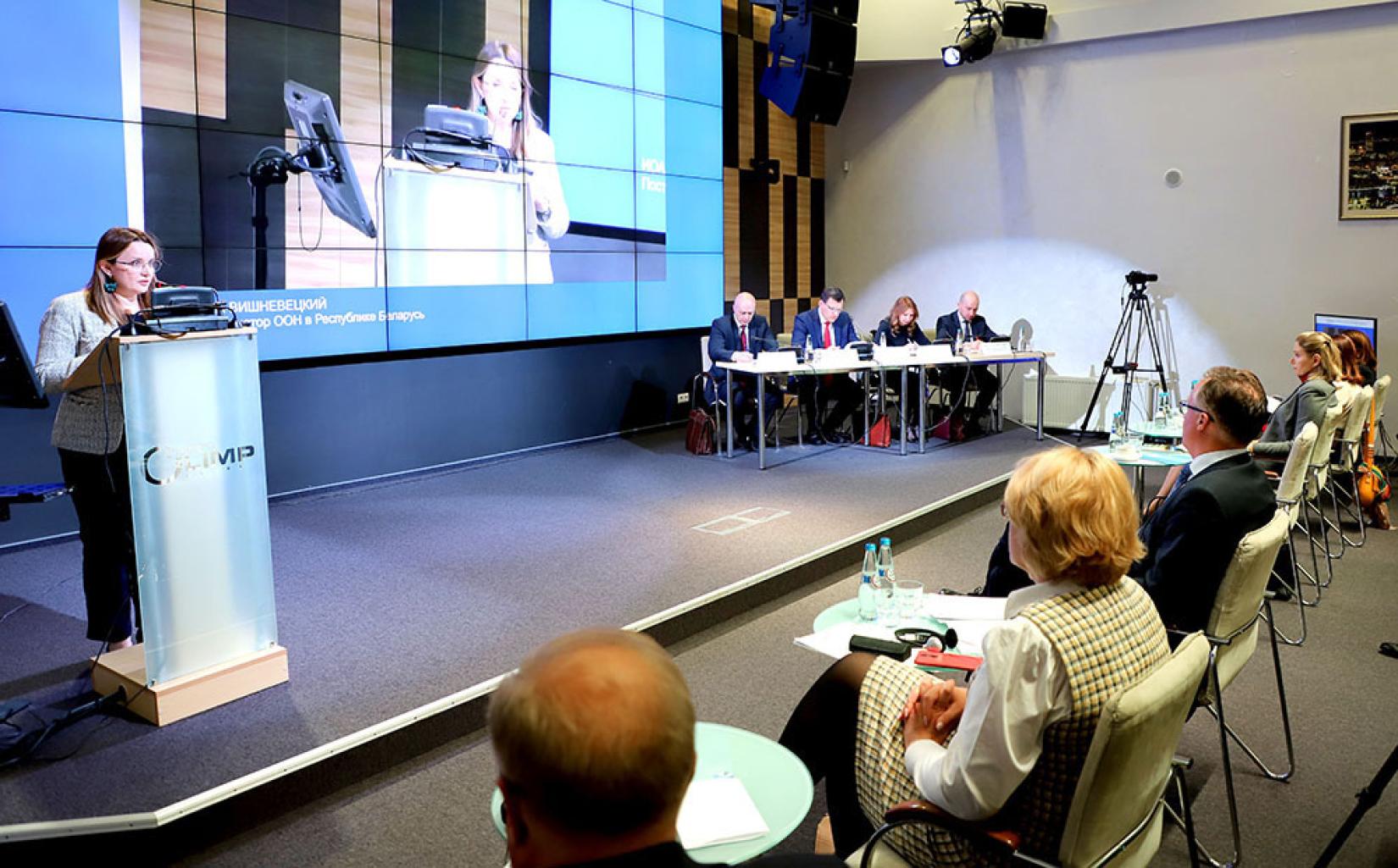
Speaking about the priorities of the United Nations in Belarus in the area of sustainable development UN Resident Coordinator highlighted the agreed long-term areas for cooperation such as green transition, opportunities for young people and future generations, supporting digital transformation and social innovations and gender equitable society with equal opportunities for women and men.
She also emphasized the importance of partnerships and the role of civil society organizations, many of whom had been liquidated earlier in 2021, for sustainable development in Belarus.
The theme of the presentation by Alexandra Solovieva, UNDP Resident Representative in Belarus, was green transition for inclusive and sustainable growth.
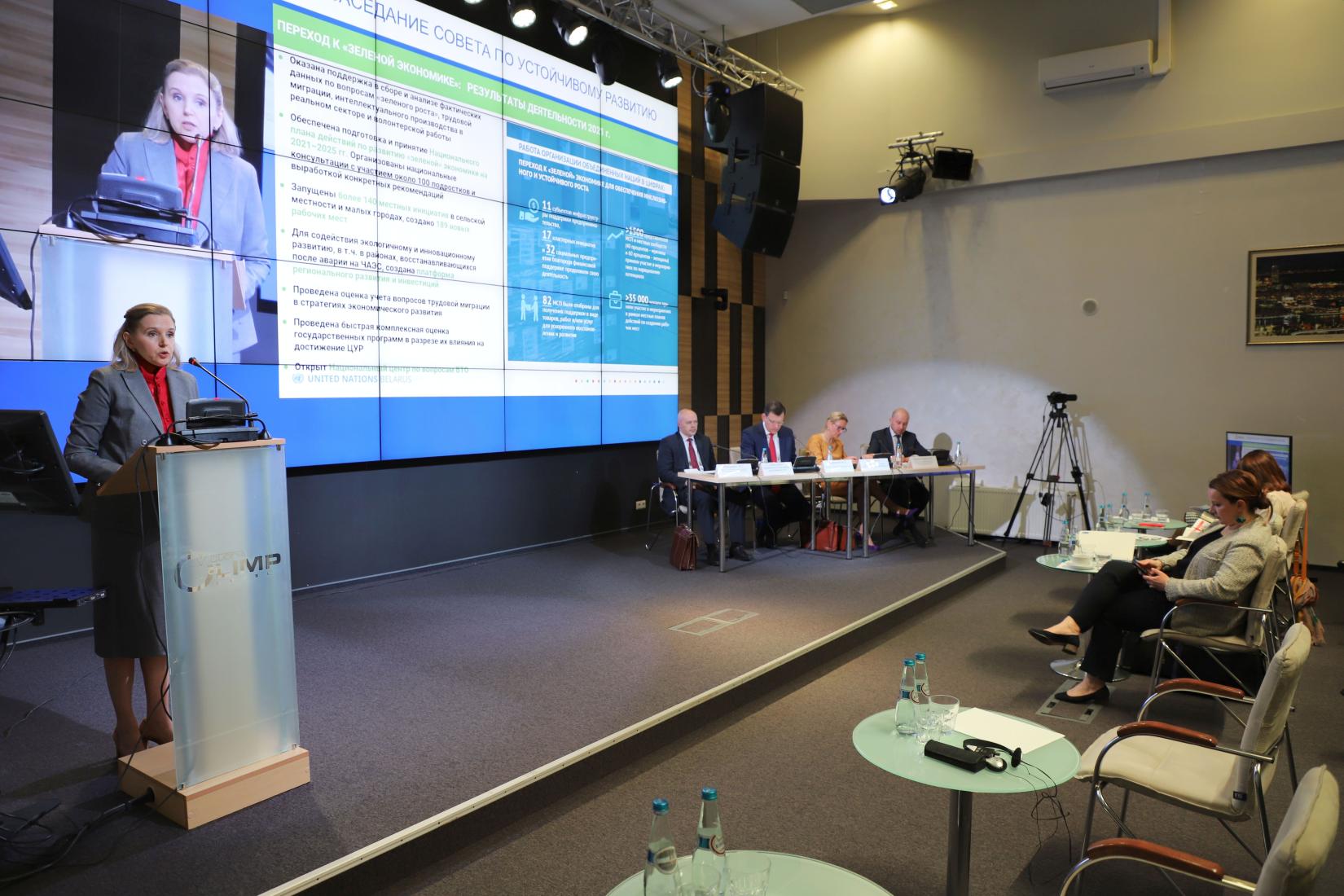
As she noted, the UN country team (UNCT) was working hard to support public authorities and administration in climate actions planning and implementation, which allowed Belarus to set a new goal to reduce CO2 emission by 35%.
As a result of UN agencies’ activities at the local level, in rural areas and small towns, dozens of initiatives were launched producing income and jobs, including creation of social enterprises for people with disabilities. The innovative Chernobyl Investment Platform was created to support green and inclusive innovation-driven growth in the districts affected by the Chernobyl catastrophe.
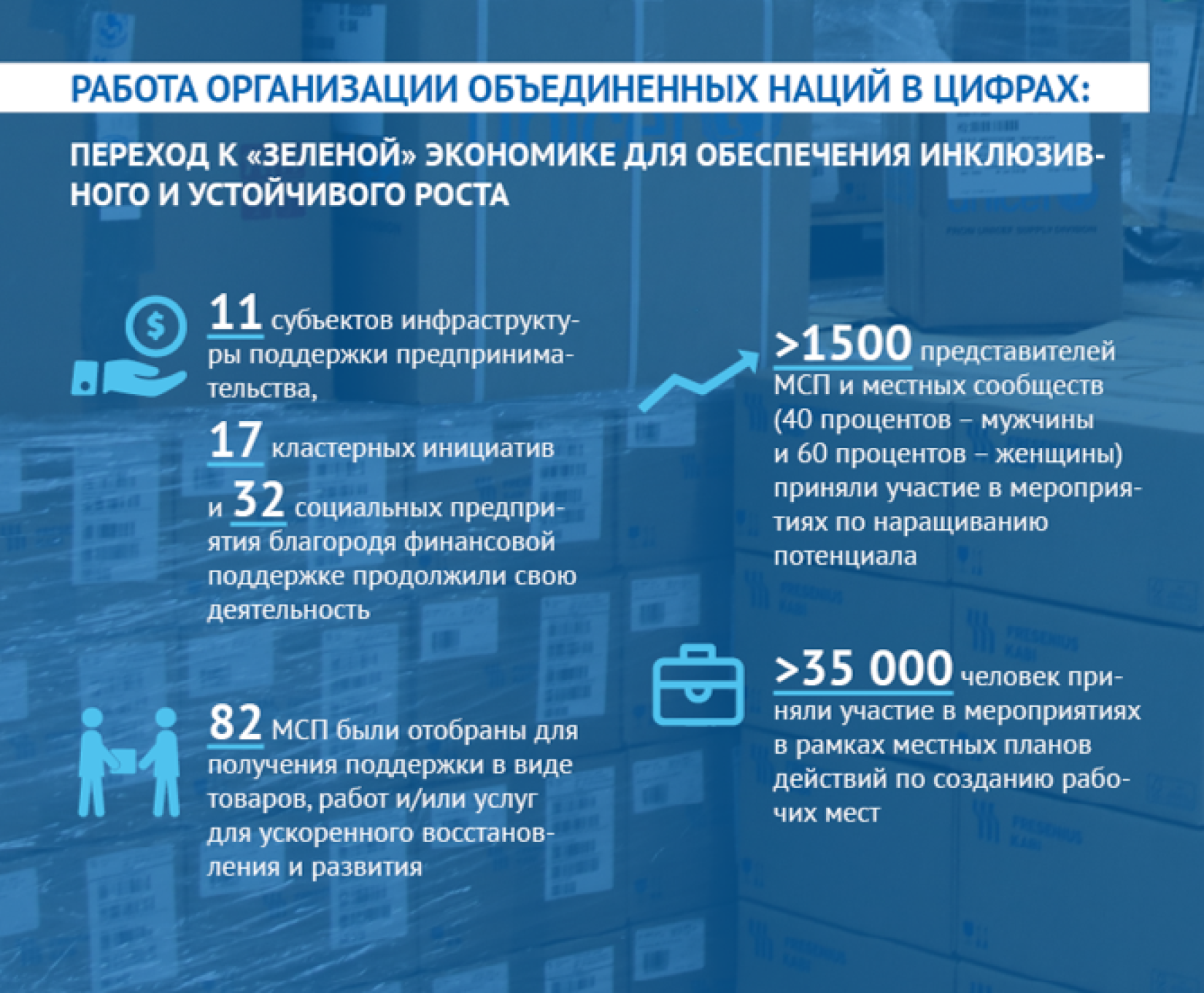
In 2022, UNCT priorities in the area of climate resilience will be disaster risk reduction in the agricultural sector, treatment of persistent organic pollutants and sustainable management of chemicals and ozone-depleting substances; in the area of innovations UNCT will focus on cleaner and resource-efficient production technologies, integrated application of eco-industrial park strategies and use of the Fourth Industrial Revolution for smart manufacturing development.
In a joint presentation dedicated to the topic of Future generations orientation: adolescence and youth Vyacheslav Grankov, acting WHO Regional Director to Belarus, and Gabrielle Akimova, UNICEF Deputy Representative, pointed out that in 2021 the UN agencies focused on providing large-scale assistance to public health care and, first of all, COVID-19 pandemic mitigation measures.
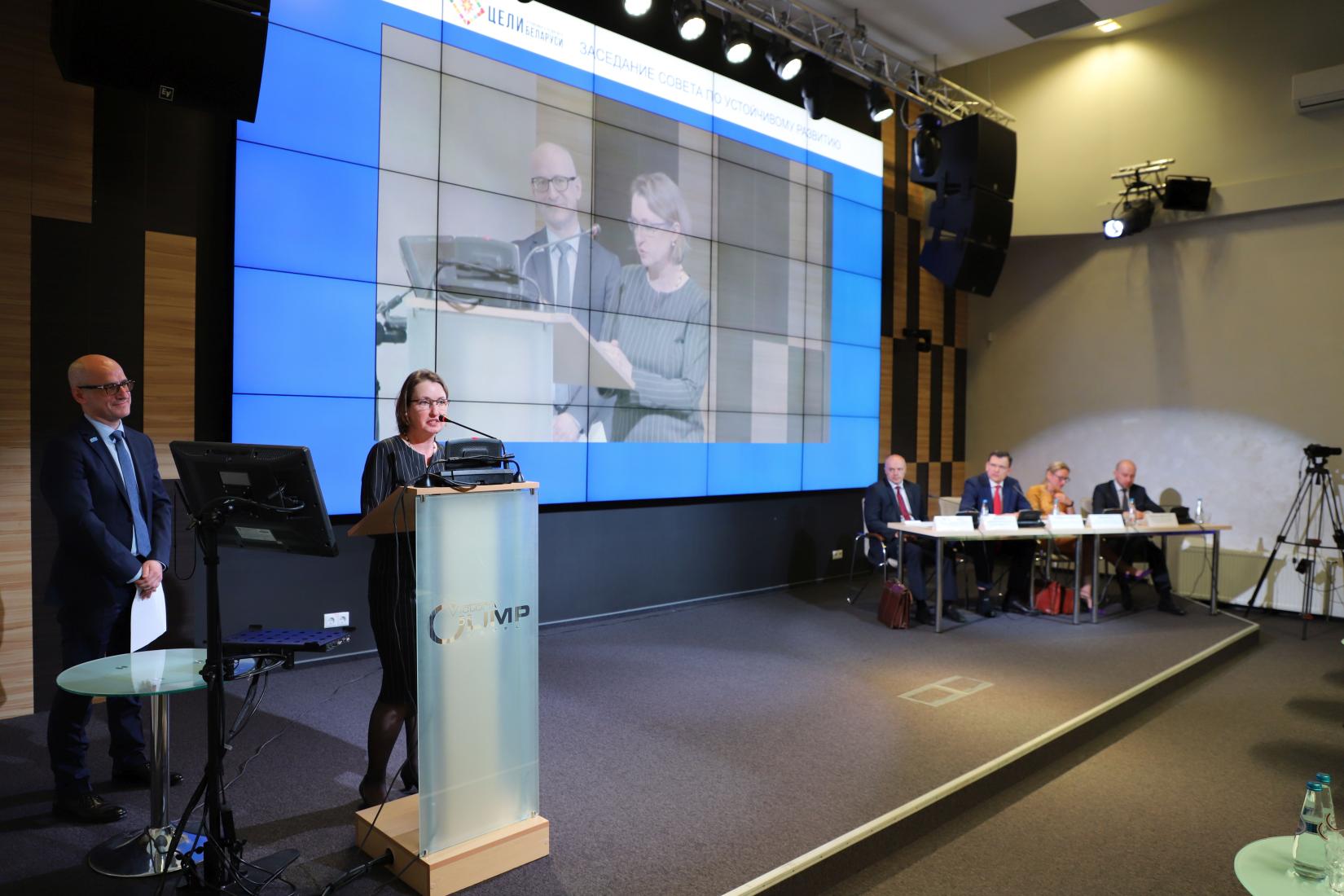
A signification contribution to the development of the national program on public health and demographic security for 2021-2025 was made as well as facilitation of assessment of COVID-19 socio-economic impact on families with children. Beside that, support was provided to develop the national system of early childhood intervention and to strengthen systems for child protection, inclusive education and encouragement of positive parenting.
In the area of digital transformation and social innovations UNCT contributed to the development of a wide range of policy-level documents on smart cities, green urban development plans and the national program of digital development for 2021-2025 as Ralph Heinrich, Economic Affairs Officer, Economic Cooperation and Trade Division, UNECE, informed in his speech.
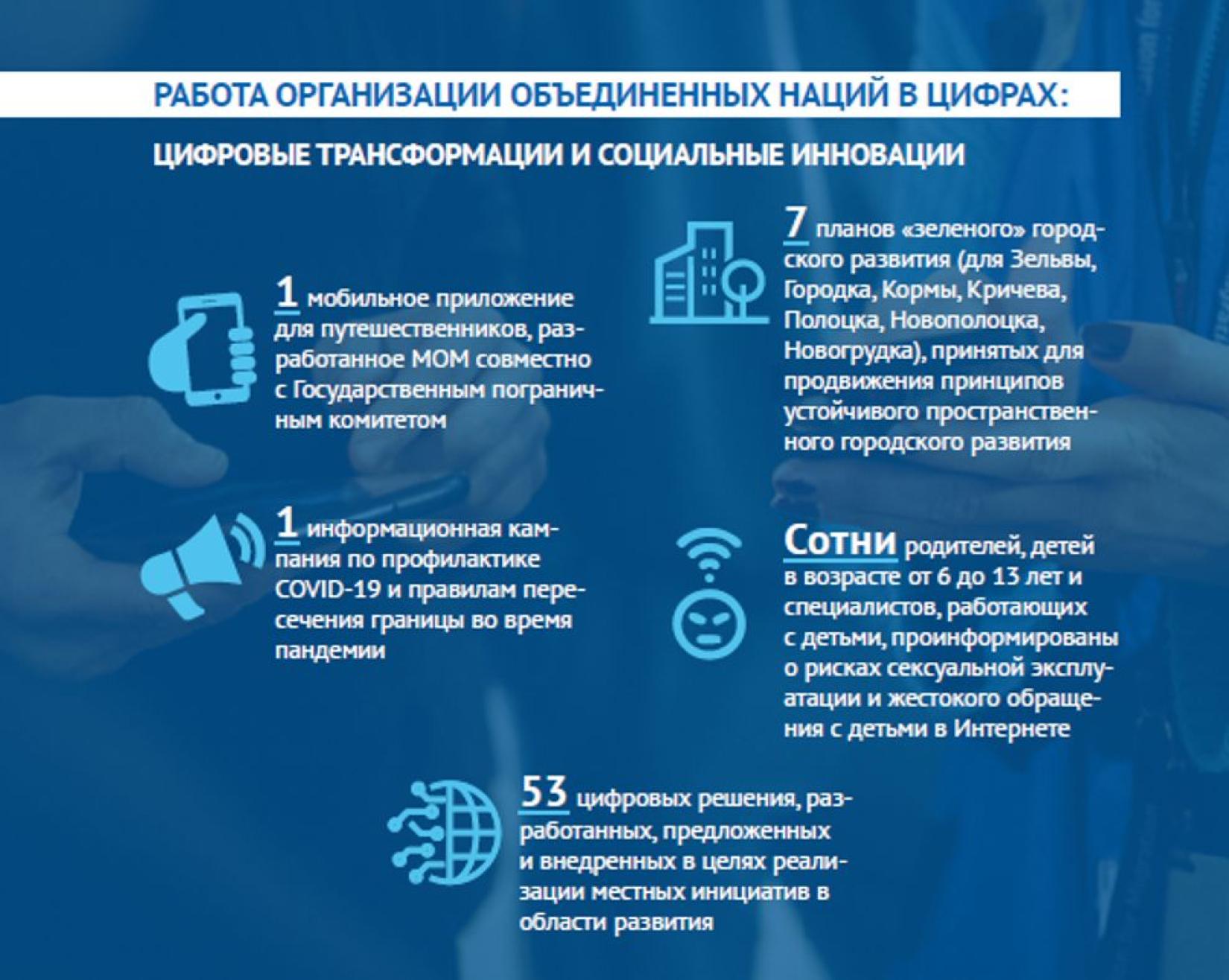
Also, among the UNCT focus areas in 2022 there are digital trade facilitation, public-private partnership related to sustainable infrastructure, green urban development in small and medium-sized cities, online safety and information security in educational cyberspace for children and teachers and reduction of digital gender gap.
Head of UNFPA Office in Belarus Olga Atroshchanka presented the results of UN activities in Belarus aimed at the achievement of gender equitable society.
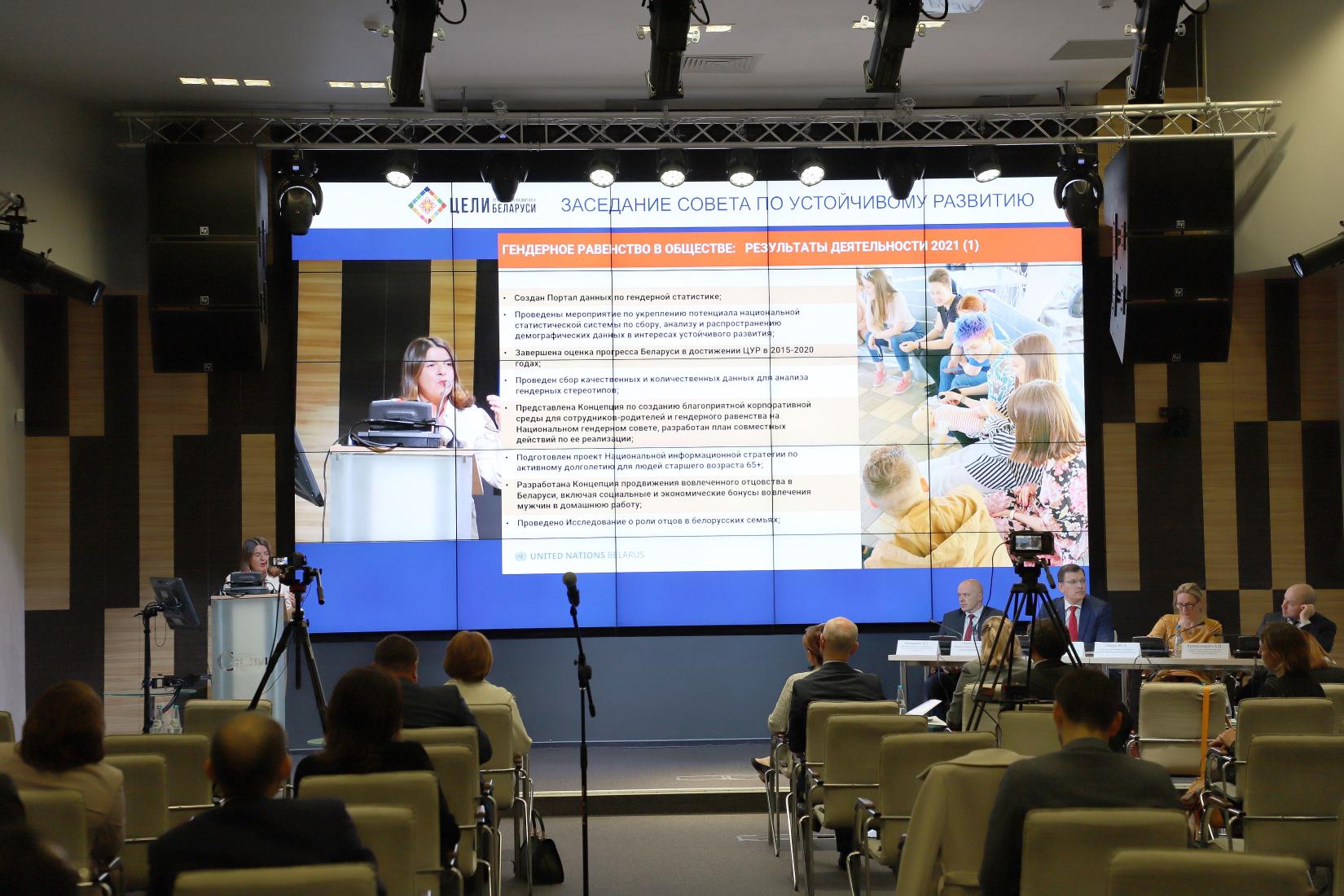
In particular, the following activities were implemented: engagement in the development of the National Action Plan for Ensuring Gender Equality; launch of the Gender Data Web Portal; presentation of the concept of favourable corporate environment for employees-parents and gender equality; development of the draft national information strategy on active longevity for the elderly people aged 65 and over; carrying out a survey of the role of fathers in Belarusian families and development of the concept of involved fatherhood promotion in Belarus, including social and economic benefits of men’s engagement into childcare.
Mahym Orazmuhammedova, Chief of Mission, IOM Belarus, and Timofei Solodkov, Associate Protection Officer, UNHCR Office in Belarus, highlighted the measures taken in response to the refugee and migration crisis in Belarus.
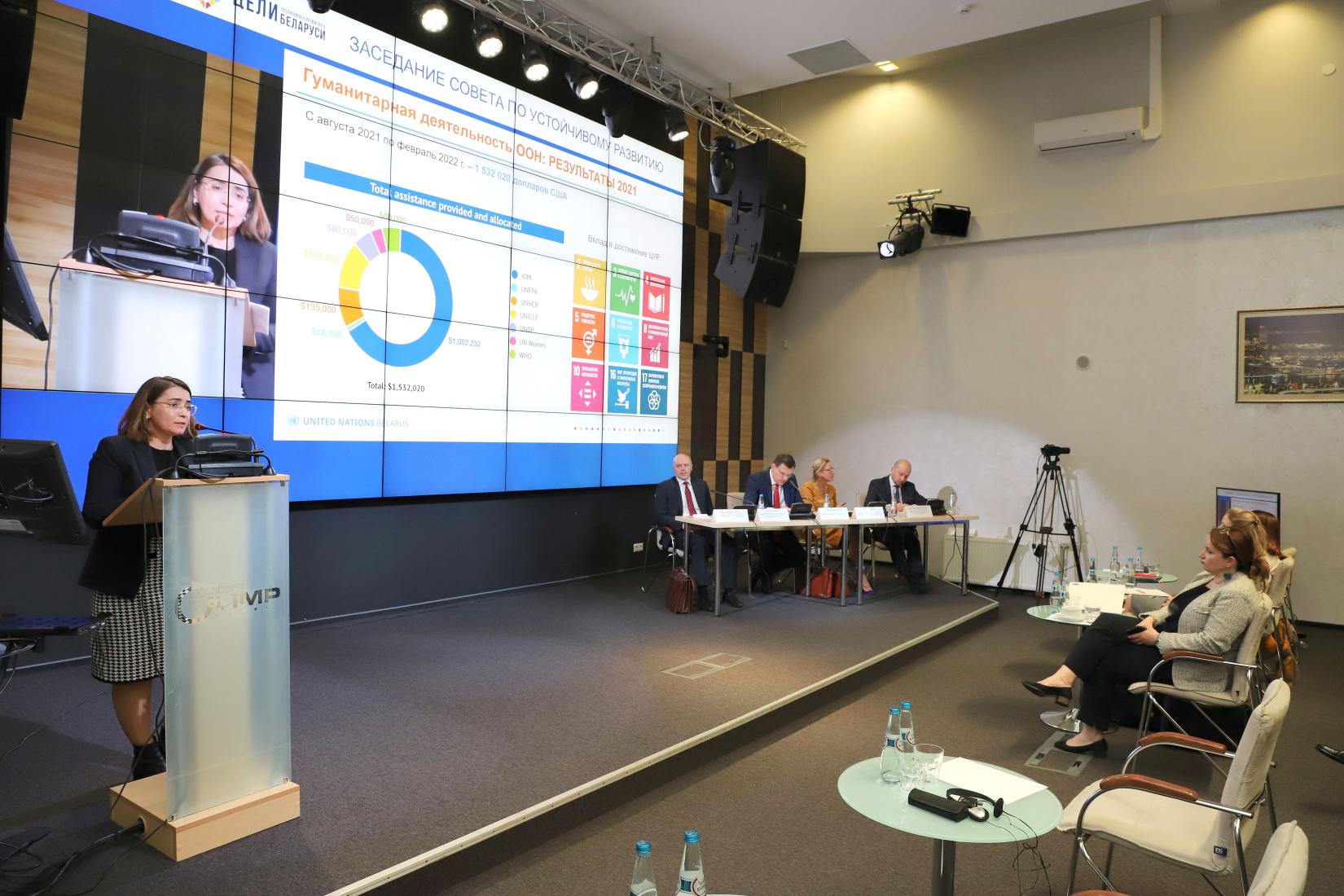
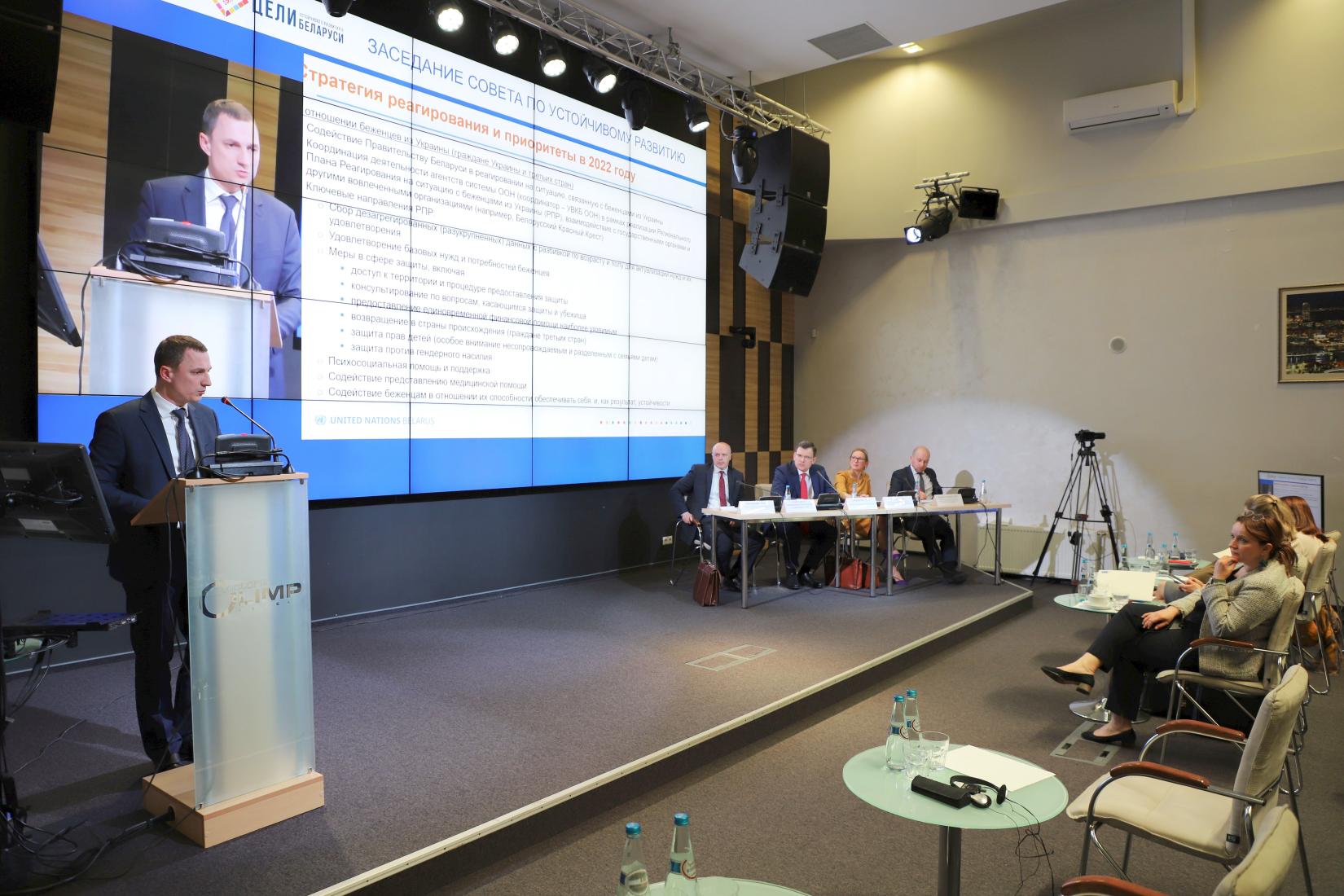
In 2021, UNCT provided immediate humanitarian aid for the total of 1,500,000 US dollars to people in the border area through enabling voluntary return of those migrants, who decided to return home, and also, providing support to those who wanted to apply for asylum in Belarus.
At present, UN provides assistance in response to the situation of refugees from Ukraine teaming up with the state bodies and other involved organizations (such as Belarusian Red Cross).
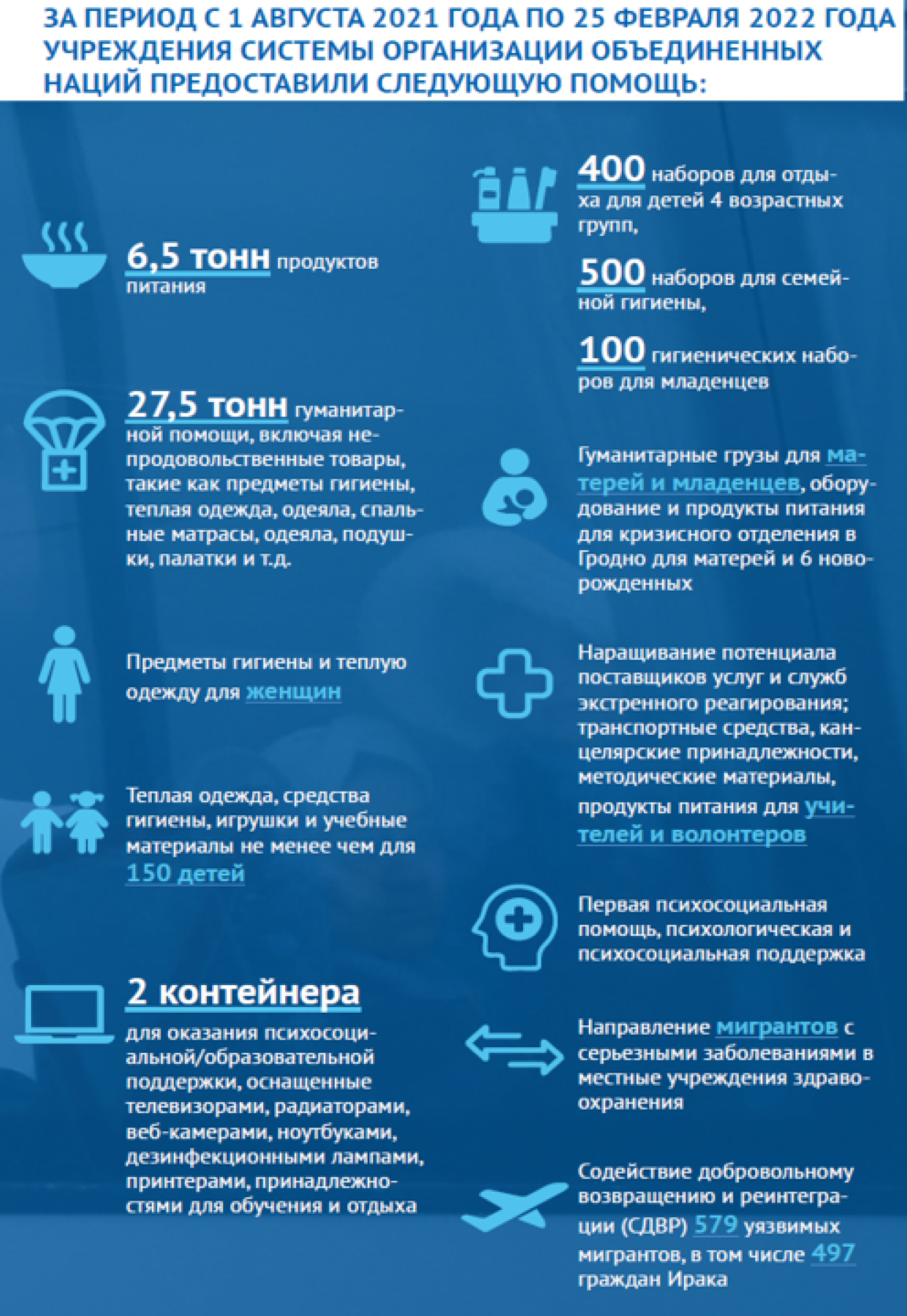
The strategic priorities of the UN Sustainable Development Cooperation Framework for 2021-2025 will guide the United Nations Organization in its activities in 2022. This work will be continued in the context of the ongoing COVID-19 pandemic and implications of the war in Ukraine and will aim to help Belarus address their diverse after-effects. Therefore the top priorities of the UN in Belarus will be:
- achieving the global goals and helping partners address the triple planetary crisis;
- focusing on Belarus-specific SDG accelerators;
- and pursuing the leaving no one behind principle.















